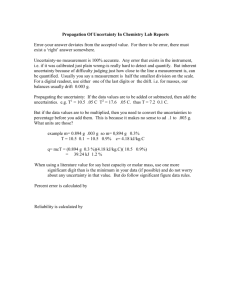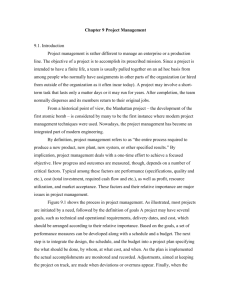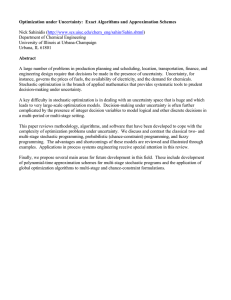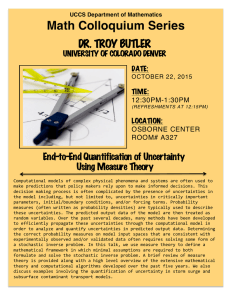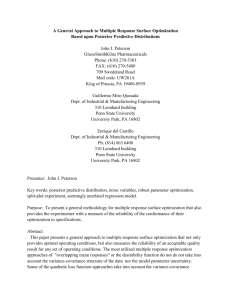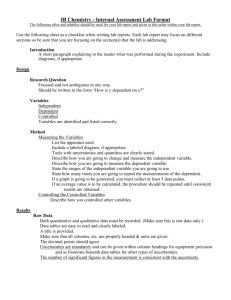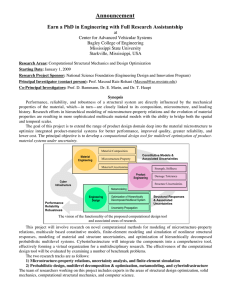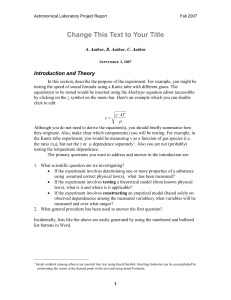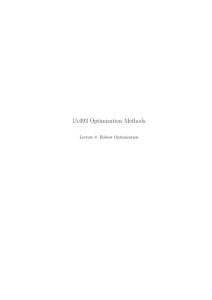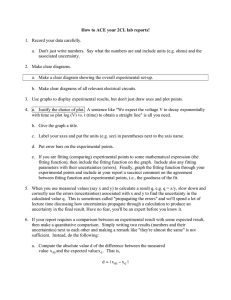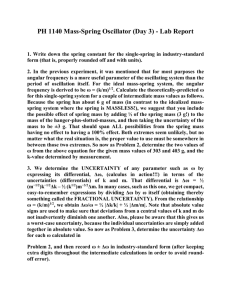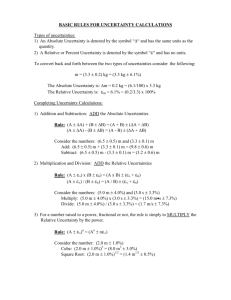Many-Objective Robust Decision Making under Deep Uncertainty: A
advertisement
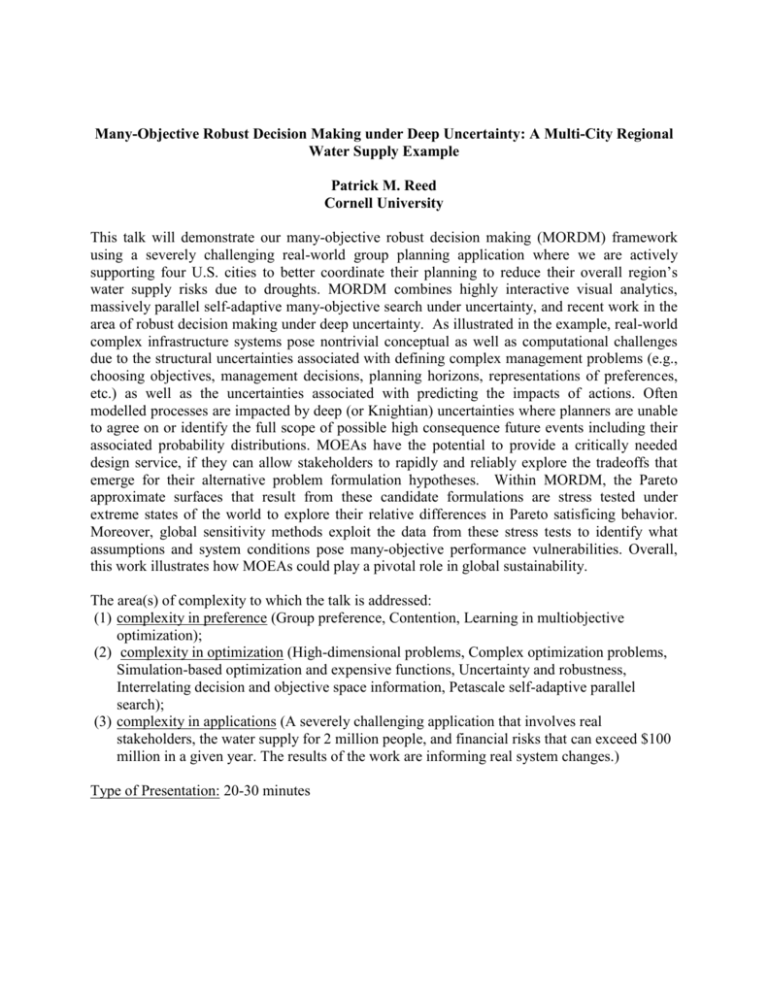
Many-Objective Robust Decision Making under Deep Uncertainty: A Multi-City Regional Water Supply Example Patrick M. Reed Cornell University This talk will demonstrate our many-objective robust decision making (MORDM) framework using a severely challenging real-world group planning application where we are actively supporting four U.S. cities to better coordinate their planning to reduce their overall region’s water supply risks due to droughts. MORDM combines highly interactive visual analytics, massively parallel self-adaptive many-objective search under uncertainty, and recent work in the area of robust decision making under deep uncertainty. As illustrated in the example, real-world complex infrastructure systems pose nontrivial conceptual as well as computational challenges due to the structural uncertainties associated with defining complex management problems (e.g., choosing objectives, management decisions, planning horizons, representations of preferences, etc.) as well as the uncertainties associated with predicting the impacts of actions. Often modelled processes are impacted by deep (or Knightian) uncertainties where planners are unable to agree on or identify the full scope of possible high consequence future events including their associated probability distributions. MOEAs have the potential to provide a critically needed design service, if they can allow stakeholders to rapidly and reliably explore the tradeoffs that emerge for their alternative problem formulation hypotheses. Within MORDM, the Pareto approximate surfaces that result from these candidate formulations are stress tested under extreme states of the world to explore their relative differences in Pareto satisficing behavior. Moreover, global sensitivity methods exploit the data from these stress tests to identify what assumptions and system conditions pose many-objective performance vulnerabilities. Overall, this work illustrates how MOEAs could play a pivotal role in global sustainability. The area(s) of complexity to which the talk is addressed: (1) complexity in preference (Group preference, Contention, Learning in multiobjective optimization); (2) complexity in optimization (High-dimensional problems, Complex optimization problems, Simulation-based optimization and expensive functions, Uncertainty and robustness, Interrelating decision and objective space information, Petascale self-adaptive parallel search); (3) complexity in applications (A severely challenging application that involves real stakeholders, the water supply for 2 million people, and financial risks that can exceed $100 million in a given year. The results of the work are informing real system changes.) Type of Presentation: 20-30 minutes
